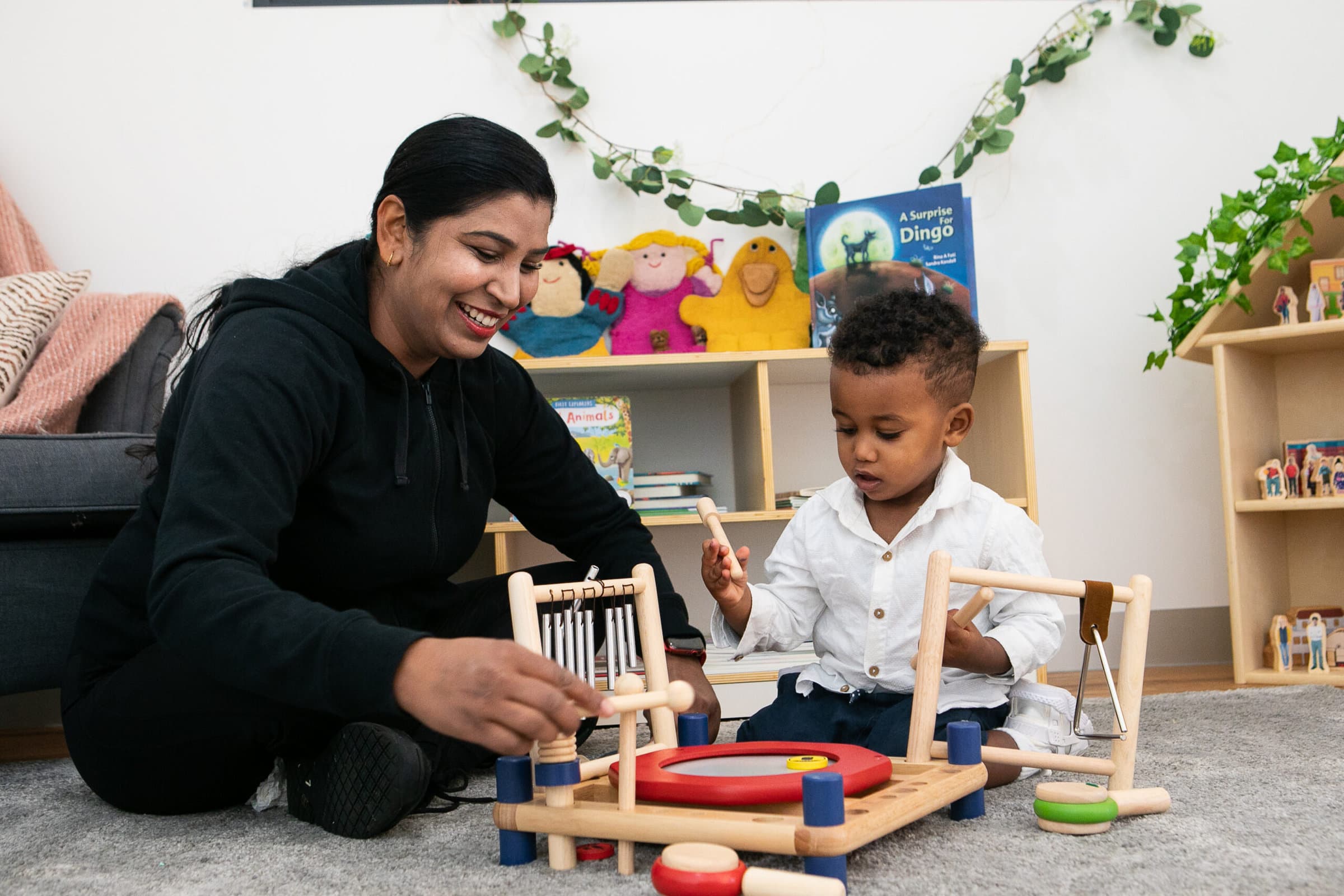Indoor Activities for Toddlers at Home


Babies are ready to learn as soon as they are born. Your child will develop their emotional, social, behaviour, communication and thinking skills through experiences and relationships. Genes, nutrition, health, and community will also influence your child’s development.
Children’s brains will develop faster in their first five years of life more than at any other stage in their life. Therefore, it is important to provide your child with a nurturing and stimulating environment with a variety of ways for them to grow and learn.
During the toddler stage, children will learn mainly through relationships and through play. Play is crucial to your baby’s cognitive development as they develop the ability to think, understand and communicate. Your child explores the work through play by experimenting, creating, and thinking. Playing with your toddler builds the relationship with your child by supporting them and providing them with a safe space to explore and learn.
Reading to your child helps toddlers learn about vocabulary, language, and sounds. Storytelling stimulates your toddler’s imagination and helps them learn about the world.
Try reading to your child each day and ask them to name what they see in the pictures.
Reading a variety of books will help your child learn about the world, different cultures and their community.
As you continue to read with your child, they will begin to become familiar with sounds, language and will develop your child’s early literacy skills.
Recent research has shown that imaginary games such as playing with dolls, can help the social and emotional development of children. Studies have found that playing with dolls and toys can aid in the development of social skills and empathy and encourages children to talk about others’ thoughts and emotions.
It is important to encourage imaginary games, this may be with dolls, soft toys, sock puppets or imaginary friends, as it allows your child to tell stories and think about how other’s may feel and react in social situations.
There are a range of indoor activities for your toddler to try this winter. Each child is different and learns at a different rate, so it is important to try a variety of activities to allow them to explore at their own pace.
Learning through sensory play allows your child to learn and develop by stimulating their senses of touch, smell, taste, hearing, and sight.
Here are some sensory activities to try at home:
Each child is unique and will benefit from different activities. Don’t be afraid to try a variety of games and activities to find which ones work best for your child.